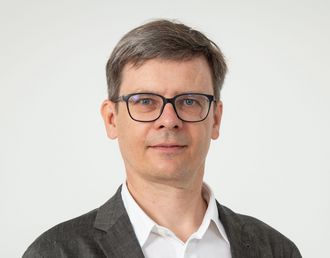GENDER DIFFERENCES IN RISK-TAKING
together with Dr. Mario Lackner. Financed by the Jubiläumsfonds, öffnet eine externe URL in einem neuen Fenster der Oesterreichischen Nationalbank, grant number 16242.
Laboratory experiments show that women differ from men in their risk-taking. This difference can potentially explain other differences between women and men, for example, in labor market performance. However, risk-taking is rarely analyzed in the field because typically only chosen strategies are observed (and, in contrast to the lab, no alternative strategies). We analyze the risk-taking of professional male and female athletes during competitions where we distinguish between more and less risky choices. We analyze situations which differ in competitive pressure as athletes might choose more risky strategies in more competitive situations.
More here, öffnet eine externe URL in einem neuen Fenster (PDF).
DETERMINANTS OF THE GENDER WAGE GAP IN AUSTRIA:
together with Christine Zulehner, öffnet eine externe URL in einem neuen Fenster, Klemens Himpele (Statistik Austria), Hedwig Lutz (WiFo) and Helmut Mahringer (WiFo). This project was funded by the Jubiläumsfonds of the Austrian National Bank (grant number 12975).
We construct a new unique data set from existing survey and administrative data, namely data from the Austrian micro-census and from the Austrian social security records to analyse the effects of the employment history of individuals on the gender wage gap. We investigate the influence of actual job experience, maternity/paternity breaks and household composition on the gender wage gap, building on earlier work (Böheim, Hofer, and Zulehner, 2007, öffnet eine externe URL in einem neuen Fenster).
Output:
- "The distribution of the gender wage gap in Austria: Evidence from matched employer-employee data and tax-records", 2012, Journal for Labour Market Research, forthcoming, with Klemens Himpele, Helmut Mahringer, and Christine Zulehner.
- "The gender wage gap in Austria: Eppur si muove!", 2012, Empirica, forthcoming, with Klemens Himpele, Helmut Mahringer, and Christine Zulehner.
ATYPICAL EMPLOYMENT:
together with Ulrike Mühlberger, öffnet eine externe URL in einem neuen Fenster and Andrea Weber, öffnet eine externe URL in einem neuen Fenster (funded by the Jubiläumsfonds of the Austrian National Bank, grant number 11090). We explore the dynamics of flexible work arrangements and investigate whether or not flexible work may be a tool to integrate individuals into the labour market. Our main research questions are the following: Does flexible work enhance the chances of regular work in the medium-term? Do workers in flexible contracts suffer wage penalties after switching to regular employment?
We look at labour market transitions and medium-term wage penalties of part-time and marginal workers as well temporary and agency workers, comparing four different European countries (Austria, Germany, Italy and the UK). In contrast to most research output in this area, we go beyond a short-term, cross-sectional analysis, providing a comparative and dynamic view of the consequences of flexible work for employees.
More Details here, öffnet eine externe URL in einem neuen Fenster (PDF).
 Zur JKU Startseite
Zur JKU Startseite



